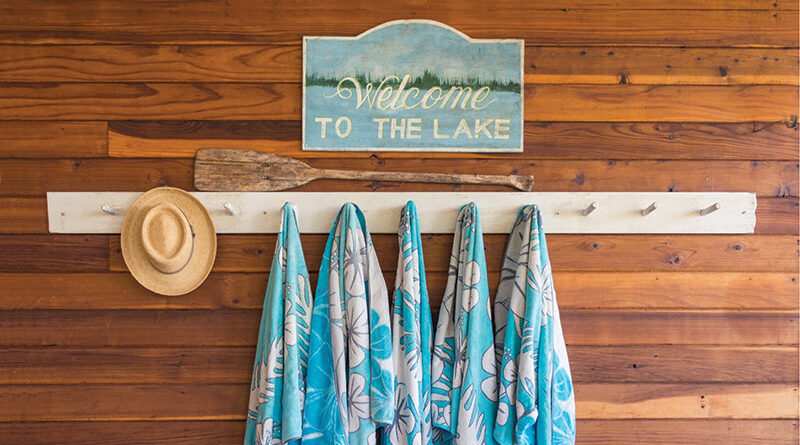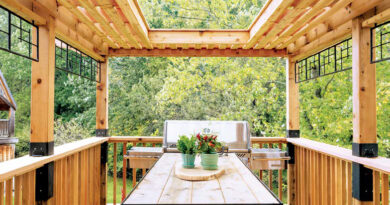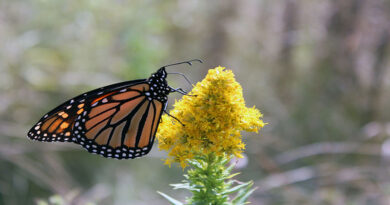Cottage Opening 101
Spring is just around the corner and with it a new cottage season is ushered in. And if your family is anything like ours,
you don’t want to waste any precious time in starting your cottage family fun.
Seasoned cottage owners already know the work involved in opening a cottage, but new cottage owners may be surprised at the laundry list of things you need to consider. Still others, even with years of experience, struggle with finding the time to get organized without all of the stress that comes with it.
In this article we will take the mystery out of cottage opening for newcomers and share some strategies and checklists to keep the process relatively painless for the experienced and not-so-experienced alike.
So let’s begin!
Before you leave
About two weeks before your first trip, make sure your cottage utilities are turned on. This includes your hydro, gas, phone or internet, cable, etc. Also check your insurance for your cottage, boat and trailer. Make sure it’s all current and that you have copies of all your important documents.
What to bring
Make note of the necessities you either ran out of or took home from the cottage last fall. Add any other items you anticipate for this year’s activities. Make a list days before you leave to help ensure you don’t forget something important (like your keys). Common cottage items include:
• towels and bedding
• toiletries (don’t forget the sunscreen!)
• shoes, clothes and bathing gear
• games and electronics
• kitchen supplies
• food stuffs
• cleaning supplies
• tools
Also remember to take up important, but sometimes overlooked items like:
• at least one Jerry can of gas
• 4 bottles of 2-stroke engine oil
• a filled propane tank for your BBQ
• new BBQ brush and back-up BBQ lighter
• nightlights and flashlights
• fresh batteries for flashlights,
smoke detectors, etc.
• newspaper for fire starter
• mosquito coils (pro tip: black coils work better)
• emergency candles
• a sharpened or new chain for the chainsaw
When you arrive
Waterlines
The first order of business when you arrive is to get the water running.
Many cottages get their water supply from the lake via a waterline. Unless you have a heated line, the outside temperature needs to be consistently above freezing before you get the water going, otherwise you risk a frozen and burst waterline, and a potentially cracked water pump.
Usually when we open our cottages, the boats are not in the water yet, so shortly after opening, you will have to move your lake-fed waterline further out into the lake and extend the line to its full reach.
When the line is in, you will have to prime both the line and the pump before you switch on power to your water pump.
Inspect the cottage exterior and perimeter
Once the water is running, you should do a thorough exterior and perimeter check of your cottage. Ensure that there is no roof damage from fallen branches over the winter. Check that there is no snow and ice damage. Do a thorough check of your deck, stairs, dock, shoreline and driveway.
You should also take the spring opening as an opportunity to clean out your leaf gutters. Sometimes it’s as easy as taking your leaf blower to clean them out, but sometimes a good high pressure wash from your gardening hose will do the job.
You should plan on your driveway being covered in leaves and small branches from the winter, so be prepared to spend an hour clearing it.
Always prepare for the unexpected. Winters can potentially wreak havoc on cottages and shorelines. Snow, water and ice take the path of least resistance. They can damage shingles, roof sheathing, gutters, down-spouts, chimney and roof vent areas, etc.
Try to anticipate these issues and plan ahead so you have the right tools with you when you need them.
The septic system
Keep in mind that your septic system has been dormant anywhere from five to seven months while you were away.
Septic systems have a “memory” of how the system was loaded down from the year before, thanks to the bacteria and enzymes that are in both the tank itself and the weeping bed, so it should operate like last year. However, if your family has expanded over the winter, or you’re planning on having more guests up this season, your septic system will have to adjust to the new load demand. Hence, if you experience odours from your main plumbing drain vent, know this is normal until the bacteria and enzymes build up in the system to accommodate the new load (no pun intended).
Submitted by Titan Renos North
We service all of Highlands East.
905-767-6524 www.titanrenosnorth.ca




